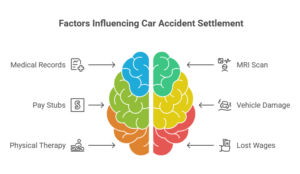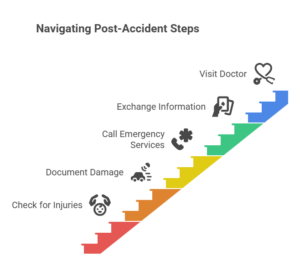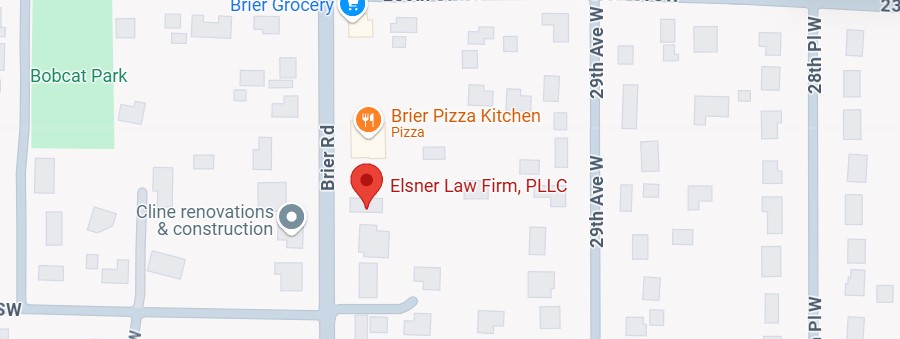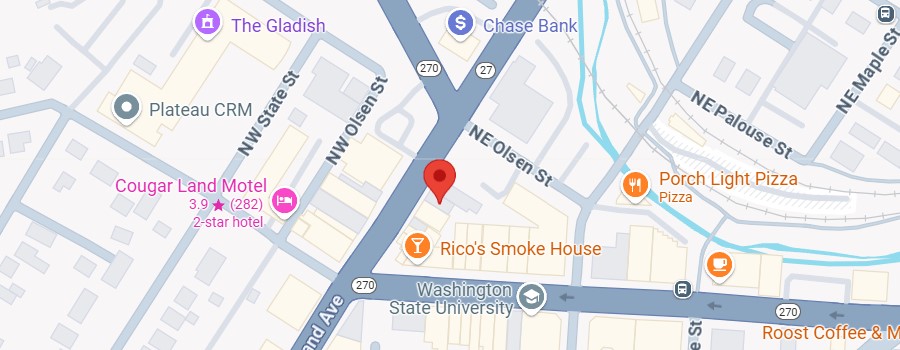Rear-Ended While Stopped: Why These Crashes Cause Worse Injuries
Being rear-ended while stopped is often worse because your body is relaxed and unprepared, so the impact forces your head, neck, and back to snap in a split second. If you are looking for a Rear End Collision Lawyer Seattle or anywhere in Washington, this kind of crash can lead to painful symptoms, missed work, and medical bills that start piling up fast.
At Elsner Law Firm, we work with drivers, busy parents, and working professionals who were stopped at a red light or in traffic and got hit from behind. Many people feel “okay” at first, then wake up sore the next day with neck stiffness, headaches, or back pain. That delay is common, and it is one reason these claims can become more serious than the vehicle damage suggests.
Rear-end crashes often happen because the rear driver was distracted or following too close. When you are stopped, the facts are usually clearer. You were where you were supposed to be. That helps when fault and compensation get questioned later.
This guide explains what happens to your body, the injuries we see most, what evidence matters in Washington, and how settlement value is affected by medical proof, lost wages, and repair costs.

Immediate Steps to Take After Being Rear-Ended While Stopped
If “i got rear ended” or “i was rear ended in a car accident”, do these steps in order.
1) Safety first
-
Check yourself and passengers for pain, dizziness, numbness.
-
Move to a safe spot if vehicles can be moved.
2) Call 911 and document
-
Call 911 if anyone is hurt or traffic is blocked.
-
Take 15 to 25 photos: both plates, damage close-up, full scene, traffic light, street signs.
-
Get witness contact info.
3) What to tell insurance
-
Share facts only: location, time, “I was stopped and hit from behind.”
-
Do not guess speed. Do not discuss injuries in detail on the first call. It is helpful to understand why insurance isn’t always helpful during these initial conversations.
4) Get medical care even if you feel okay
Pain and stiffness often rise after 24 to 48 hours. A same-day visit creates a clear record.
5) Talk to a personal injury attorney early
Early help from a Car Accident Lawyer Seattle can protect evidence, treatment records, and wage proof.
Introduction to Car Accidents
Car accidents are an unfortunate reality on today’s roads, with rear end collisions standing out as one of the most common and potentially dangerous types of vehicle crashes. A rear end collision happens when one vehicle strikes the back of another, often resulting in significant injuries and extensive vehicle damage. According to the National Highway Traffic Safety Administration (NHTSA), rear end collisions make up nearly 29% of all car accidents, highlighting just how prevalent such accidents are. Understanding the risks and consequences associated with rear end collisions is essential for drivers who want to protect themselves and ensure they receive fair compensation if they are involved in one of these incidents.
Causes of Rear-End Collisions
Most rear end collisions are the result of preventable driving behaviors. Distracted driving accounts for a staggering 87% of rear end collisions, making it the leading cause of these accidents. When a rear driver is not paying attention—whether due to texting, adjusting the radio, or other distractions—they are less likely to notice when the lead driver slows down or stops. Tailgating, or following too closely, also increases the risk, as it reduces the time and distance needed to react to sudden stops. Malfunctioning brake lights on either vehicle can further contribute to rear end collisions by making it difficult for the rear driver to see when the lead driver is braking. While the rear driver is typically considered at fault for not maintaining a safe distance, there are situations where the lead driver shares fault for the collision as well.
Who Is At Fault When You Get Rear-Ended While Stopped?
Most of the time, the rear driver is at fault for hitting a stopped vehicle, including a rear ended at stop light crash. Washington law requires drivers to follow at a “reasonable and prudent” distance, based on speed, traffic, and conditions.
If you are asking, “i was rear ended who is at fault”, the usual answer is: the driver behind you, unless strong evidence shows an exception.
Rare exceptions that can shift some fault
-
Brake light failure on the lead vehicle that made stopping hard to see.
-
Sudden reversal by the lead vehicle.
-
Unsafe lane change directly in front of the rear driver with no time to react.
Washington also uses comparative fault. Any share of fault can reduce damages by that percentage.
Evidence that proves fault fast
-
Photos of both cars, lane position, traffic light, skid marks.
-
Dashcam or nearby business video.
-
Witness names and phone numbers.
-
Police report number.
-
Repair estimate showing point of impact and crush pattern.
What to say (and not say) at the scene
-
Say: “I was stopped, then I was hit from behind.” Keep it simple.
-
Do not say: “I’m fine,” “I didn’t see them,” “I stopped suddenly,” or any apology.
-
Ask the other driver for insurance and ID. Take a clear photo of both.
Why Being Stopped Makes Rear-End Collisions Worse
Being rear ended while stopped puts drivers and passengers at greater risk for severe injuries. When your vehicle is stationary, it cannot absorb or dissipate the force of the impact, causing your body to take the full brunt of the collision. This often leads to more serious injuries, such as traumatic brain injuries from cars, spinal cord injuries, and other severe injuries that can have long-lasting effects. The sudden jolt can also cause significant vehicle damage, making it crucial to document the accident scene thoroughly and seek immediate medical attention, even if injuries are not immediately apparent. Additionally, being stopped at the time of the rear end crash can sometimes complicate the process of establishing fault, especially if there are questions about the actions of the lead driver or the condition of the brake lights. Proper documentation and prompt medical care are essential steps in protecting your rights and ensuring you receive fair compensation for your losses.
What Happens to Your Body When You Get Rear-Ended?
What happens to your body when you get rear-ended is a rapid chain reaction. Your car moves first. Your torso follows. Your head lags behind, then snaps forward. This can strain the neck, upper back, and lower back, even in a low-speed hit.
When you get rear ended what happens
-
The seat pushes your torso forward.
-
The neck bends back, then forward.
-
The spine compresses. Muscles tighten to “catch” the motion.
Why symptoms can show up 24 to 48 hours later
Adrenaline and endorphins can mask pain right after a crash. Soreness often shows once stress hormones drop and inflammation builds. Many people notice symptoms in the 24 to 48 hour window.
Stopped vs. moving impact
-
Stopped: your body is less braced. The change in speed feels more sudden.
-
Moving: you may already be tense and “with the car,” so the jolt can feel different.
Rear-End Collision Repair and Hidden Damage Costs
Rear end damage can look small and still cost a lot once a shop starts teardown. Industry reporting shows the average total cost of repair ended 2024 at over $4,730, and stayed near $4,768 year-to-date in 2025.
Rear end collision repair cost ranges (common scenarios)
-
Cosmetic bumper repair often falls around $300 to $1,200.
-
Full bumper replacement often runs $800 to $2,500+, higher with sensors and paint blending.
Can getting rear ended mess up alignment?
Yes. A rear impact can shift suspension angles, bend mounting points, or push the rear structure just enough to change how the car tracks. Alignment issues show up as:
-
Steering wheel off-center
-
Vehicle pulling left or right
-
Uneven tire wear
Diminished value
A crash on the vehicle history report can reduce resale value, even after repairs.
How repair costs affect settlements
Repair bills, rental days, and photos support the force and the disruption caused by the crash, and they often become part of the claim package. Understanding how rear-end damage happens can help you explain these costs to an insurance adjuster.
Back Injuries: A Closer Look
Back injuries are among the most common and debilitating consequences of a rear end collision. The sudden force of impact can cause the spine to compress or stretch unnaturally, leading to conditions such as herniated discs, which can result in significant pain, chronic pain, and even nerve damage. Victims may experience limited mobility, muscle weakness, or persistent discomfort that interferes with daily life and work. Prompt medical attention is essential to diagnose and treat back injuries effectively, as untreated injuries can worsen over time. If you are suffering from back injuries after a rear end collision, consulting a personal injury attorney can help you pursue fair compensation for your medical expenses, lost wages, and ongoing pain. An experienced rear end accident lawyer can guide you through the legal process, ensuring your rights are protected and you receive the support you need for your recovery.
Understanding Rear-End Collision Settlements in Washington
A getting rear-ended while stopped settlement in Washington can be small or very large. The number depends on injury proof, time off work, and insurance limits. Most stopped rear-end claims that involve documented treatment fall in the five-figure range. Severe cases can reach six or seven figures, but coverage limits often cap what is collectible.
Average settlement ranges for stopped rear-end collisions
There is no official “Washington average” published for this exact crash type. These ranges reflect common patterns in rear-end personal injury settlements based on injury level, treatment length, and documentation. National claim data also shows the average bodily injury liability claim paid in 2024 was $28,278, which helps explain why many real-world outcomes cluster in the tens of thousands.
Typical ranges (stopped rear-end):
-
$5,000 to $20,000: Mild soft-tissue pain. Short treatment. No imaging. Few missed workdays.
-
$15,000 to $60,000: Clear whiplash symptoms. Physical therapy or chiropractic care for weeks. Documented work limits.
-
$50,000 to $150,000: Disc bulge or herniation on MRI, radicular pain, injections, long PT, longer time off work.
-
$150,000 to $750,000+: Surgery, fractures, traumatic brain injury, or long-term impairment. These cases often hit policy limits first.
For context, many whiplash-only settlements are commonly cited around $12,000 to $30,000 when there is no permanent impairment, with higher values when symptoms last longer or records are strong.

What raises the value of getting rear ended while stopped settlements
Settlement value rises when the file shows clear, measurable loss. Adjusters and juries usually pay more for cases with objective findings and consistent treatment.
Top value drivers:
-
Injury severity and duration: Symptoms lasting 90+ days often carry more weight than a 7 to 14 day flare-up.
-
Objective medical proof: MRI findings, nerve testing, documented reduced range of motion, concussion screening notes.
-
Treatment level: ER visit, imaging, specialists, injections, surgery, or a structured PT plan.
-
Lost wages: Pay stubs, timecards, and a doctor note restricting work. Proving your lost wages with documentation can move the number fast.
-
Future care: Follow-up PT, pain management, or surgery recommendations in the chart.
-
Clean documentation: Consistent symptom reporting from first visit through discharge.
How being stopped can change your settlement amount
Being stopped can help your claim in two ways.
Liability is clearer. Washington drivers must not follow “more closely than is reasonable and prudent.”
If you were fully stopped at a red light or in traffic, insurers have less room to argue you caused the crash. That matters because Washington reduces compensation by your share of fault.
The impact is often more abrupt. NHTSA research on rear-end events notes that crashes where the lead vehicle is stopped or moving very slowly make up a large share of rear-end crashes.
A stopped occupant is also less likely to be braced, which can increase neck and back injury complaints.
Timeline for receiving a settlement in Washington
Most cases do not settle at the scene or in the first few weeks. Settlements usually happen after treatment stabilizes, because you need final bills, records, and a clear diagnosis. It is important to know how long cases take to resolve so you can plan accordingly.
A practical timeline looks like this:
-
Minor injuries: Often a few months if treatment is short and liability is clear.
-
Moderate injuries: Commonly several months to about a year, depending on treatment length and negotiation.
-
Severe injuries or disputed fault: Often 12+ months, sometimes longer if a lawsuit is filed.
After a settlement is agreed and releases are signed, the check often arrives within a few weeks, but timing varies by carrier and medical lien issues.
Why settlements can be higher when stopped vs. moving
Stopped cases often pay more for one simple reason: the defense has fewer angles.
-
A moving lead driver can be blamed for speed changes, lane changes, or partial braking disputes.
-
A stopped lead driver often has stronger liability facts, which reduces “fault discounts” under Washington’s comparative fault rule.
If you were rear-ended while stopped in Seattle, Tacoma, Bellevue, Everett, or anywhere in Washington, keep your medical records and wage proof together from day one.
Frequently Asked Questions
Is it worse to be rear-ended while stopped?
Yes, being rear-ended while stopped is typically worse because your vehicle cannot absorb or dissipate the impact force. When stopped, your body takes the full brunt of the collision, leading to more severe injuries like whiplash, spinal injuries, and traumatic brain injuries. The stationary position also means you’re unprepared for impact, increasing injury severity.
What is the average settlement for getting rear-ended while stopped?
The average settlement for being rear-ended while stopped in Washington ranges from $15,000 to $150,000+, depending on injury severity, medical expenses, lost wages, and property damage. Minor soft tissue injuries typically settle for $15,000-$30,000, while severe injuries involving surgery or permanent disability can exceed $150,000. Being stopped at impact often increases settlement value due to higher injury risk.
Who is at fault when you get rear-ended while stopped?
The rear driver is at fault in nearly all rear-end collisions when the front vehicle is stopped. Washington state law requires drivers to maintain safe following distances and control their vehicles. Exceptions are rare and include situations where the stopped vehicle had malfunctioning brake lights or suddenly reversed. If you were stopped at a light or in traffic, fault typically lies 100% with the rear driver.
What happens to your body when you get rear-ended?
When rear-ended while stopped, your body experiences sudden acceleration from the impact force. Your head snaps backward (hyperextension) then forward (hyperflexion), causing whiplash. Internal organs shift against seatbelts, potentially causing soft tissue damage. Your spine compresses unnaturally, risking disc herniation. Muscles and ligaments stretch or tear as they try to stabilize your body. Many injuries aren’t immediately apparent due to adrenaline.
How much does a rear-end accident cost?
Rear-end accident costs include vehicle repairs ($1,500-$10,000+), medical treatment ($2,500-$100,000+), lost wages, and pain and suffering compensation. Low-speed collisions average $3,000-$8,000 in total costs, while moderate to severe impacts can exceed $50,000-$200,000 when factoring in long-term medical care, rehabilitation, and lost earning capacity. Hidden costs like diminished vehicle value and alignment repairs add to the total.
Can getting rear-ended mess up your alignment?
Yes, getting rear-ended can definitely mess up your vehicle’s alignment. The impact force can bend the frame, shift suspension components, and knock wheels out of alignment. Even low-speed rear-end collisions can cause alignment issues that lead to uneven tire wear, steering problems, and vehicle pulling. Always get a professional alignment check after a rear-end collision, as misalignment may not be immediately visible but can cause safety issues and additional damage.
What injuries can you get from being rear-ended?
Common rear-end collision injuries include neck whiplash, back injuries (herniated discs, strains), traumatic brain injuries, soft tissue damage, broken bones (ribs, wrists, arms), spinal cord injuries, internal injuries, and nerve damage. Even low-speed rear-end accidents can cause serious injuries. Symptoms may not appear immediately, many injuries manifest 24-48 hours post-accident. Always seek medical care immediately after being rear-ended, even if you feel fine initially.
What should I do immediately after being rear-ended?
After being rear-ended: (1) Check for injuries and call 911 if needed, (2) Move to safety if possible, (3) Call police to document the accident, (4) Take photos of damage, license plates, and accident scene, (5) Exchange information with the other driver, (6) Get witness contact information, (7) Seek medical attention within 24 hours, (8) Notify your insurance, (9) Document all expenses, and (10) Contact a personal injury attorney before accepting any settlement offers.
What does rear-ended mean in a car accident?
Being rear-ended means another vehicle struck the back of your vehicle. In car accident terminology, the vehicle that hits from behind is called the “rear driver” or “following vehicle,” while the vehicle that gets hit is the “lead vehicle” or “front vehicle.” Rear-end collisions are one of the most common accident types, accounting for nearly 29% of all crashes. The rear driver is typically at fault for following too closely or not maintaining control.
How long does a rear-end collision settlement take in Washington?
Rear-end collision settlements in Washington typically take 3-18 months, depending on injury severity, treatment duration, and negotiation complexity. Simple cases with minor injuries may settle in 3-6 months, while complex cases involving severe injuries, surgery, or disputed fault can take 12-18+ months. Never settle before reaching maximum medical improvement (MMI). An experienced attorney can expedite the process while ensuring your settlement is enough to cover your long-term needs.
Conclusion
A rear-end collision while you are stopped can change your week, your budget, and your health. Pain can rise after 24 to 48 hours. Repair costs can grow after teardown. Insurance questions can start before you even finish your first medical visit. Keep it simple: get checked, document everything, and protect your timeline. Book your free consult with Elsner Law Firm. Call 206-447-1425 to talk through your next step after being rear-ended while stopped.





